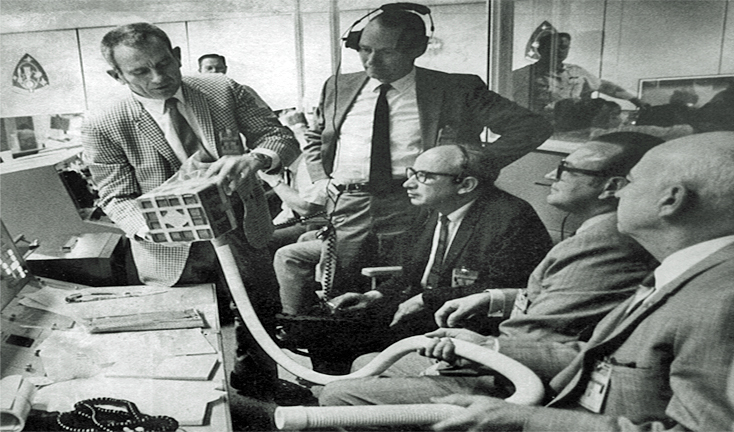
NASA engineers figured out how to use a plastic bag, cardstock, a spacesuit hose and, naturally, duct tape, to jury-rig a carbon dioxide filter so the astronauts of Apollo 13 could breathe on their journey back home, 54 years ago today.
(The Hamilton Spectator – Saturday, April 13, 2024)
I’m no expert, but I’ve been thinking about problems lately. And children. And their stories.
You know, there’s that loveable bear, Pooh, exploring the Hundred Acre Wood. And Peter, the boy who never grew up but learned to fly. Or that tiny spider, Charlotte, determined to save her dear friend, a pig, from slaughter. And the little girl, Alice, sliding into a strange world where she’s never quite the right size. And other stories, so many.
Children, if they’re worth their salt (and most are) rarely allow adult hang-ups to slow them down. A large stuffed Winnie-the-Pooh that I found one day in Yemen, where children are loved dearly, sits in our home as a reminder. Take yourself too seriously (Pooh never does) and your problems will just increase.
I recently read about a girl, Jenna, who got out of sorts with her problems, seemingly delivered express by some troublemaker appointed just for her. The girl, comparing herself with others (never a good idea), sets out to find a different bag of troubles, lighter and easier to manage, only to discover that she’d rather keep hers.
Into this comes today, its many problems slung, apparently randomly, around the planet, eight billion or so bags if we each get one. Should we call today “International Day of the Problem?” The phrase “Houston, we have a problem,” in fact, originated on April 13.
On April 13, 1970, Apollo 13, intended as NASA’s third moon landing, blew an oxygen tank and appeared to doom its three-man crew to death in space. Astronaut John (Jack) Swigert announced “Ah, Houston, we’ve had a problem here,” which, later, in the 1995 movie “Apollo 13,” and in popular usage, became the well-known, “Houston, we have a problem.”
It’s true. Problems abound. Washington, we have a problem. Moscow, we have problem. Beijing, we have a problem. Ottawa, we have a problem. Hamilton, we have a problem. And behind your front door? And mine? We have a problem.
My problems, so tiny in the face of the cosmos, have often involved waiting, like when sailing. You can raise your sail, but raising the wind is an entirely different matter. The other tricky matter is seeing half straight what a problem even is. Someone once said, don’t stir a muddy puddle. It’s not a problem. But don’t ignore a leaking ceiling or it worsens. Know which is which.
There’s no sense worrying about tomorrow, of course, because tomorrow brings its own worries and a fresh batch of problems. Some ship, if not spaceship, will go down. Or maybe a ship will crash into some bridge. Maybe it will crash into your very life, like tomorrow, April 14, is the day the Titanic crashed into that iceberg.
But tomorrow, or today, like any day, we get out there with our assorted problems because, really, what choice is there? More so, if not you or me, who will help fix what’s broken?
In the case of Apollo 13, the crew survived by using its lunar module, normally used only for the moon’s surface, as a space lifeboat. With their God-given imagination, NASA engineers also figured out how to use only a plastic bag, cardstock, a spacesuit hose, and, naturally, duct tape, to jury-rig a carbon dioxide filter so those astronauts could breathe on their journey back home.
Which is to say that there are worse things to have than a fine imagination. It can save your life. This, by the way, relates to the power of story, the distilled truth found in fiction. Also, isn’t it the imaginative children of the world who live closer to the unseen kingdom of heaven, more attune to its mystery, that enigmatic home that we long for and, yet, have somehow forgotten?
Some people will tell you otherwise, that children and children’s stories and imaginative ways are just a waste of time. But you can ignore them. Those dull souls will never fly.

So I am sitting here
several thousand feet in the air
finding it very comfortable in my armchair
which, by the way,
welcomes me like an old lover
And sensing only an interesting desire
To read
More
Of your delightful
Artistry
In word
And line of thought.
So you are flying! Wunderbar!